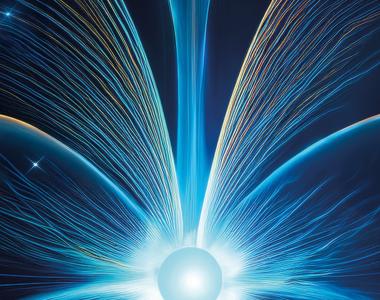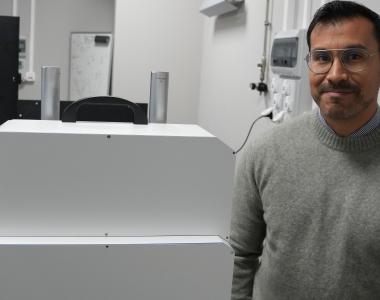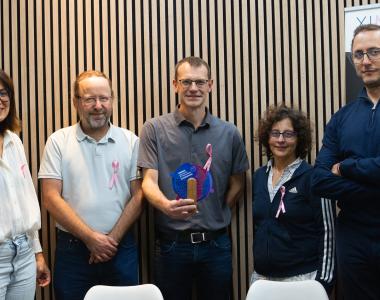News
Two Ph.D. theses in micro-machining are on-going at ALPhANOV
Kevin GAUDFRIN and Isabel VERIT, nanoscale laser micro-machining engineers, work on their Ph.D. theses at ALPhANOV technology center.
Kevin GAUDRIN thesis concerns the multi-perforation of transparent dielectric materials by femtosecond/sub-nanosecond laser hybrid-process.
The thesis revolves around the AS-TGV project, aiming at developing a technological solution based on the use of femtosecond laser to answer the problems of multi-perforation of transparent dielectric materials in the field of microelectronics.
The thesis has two research axes:
- A first part on numerical modeling to evaluate the thermal load, the residual stresses and the potential damage induced in a transparent dielectric material during the laser multi-perforation process.
- A second experimental part involving the implementation of the laser process.
Referent laboratory: CELIA (Centre Lasers Intenses et Applications)
PhD supervisors: Dr. Guillaume Duchateau (Directeur de thèse, Laboratoire CELIA), Dr. John Lopez (Laboratoire Celia), Dr. Clémentine Javaux (ALPhANOV) et Dr. Rainer Kling (ALPhANOV).
Partners: Laboratory Celia, Amplitude Systèmes and ALPhANOV.
Isabel VERIT thesis aims to fabricate a micro-vascularized glomerular network using ultra-short laser micromachining.
The greatest difficulty in tissue engineering, and in particular in laser-assisted bio-printing, is the vascularization of tissues. In fact, the blood vessels supply the cells with oxygen and the necessary nutrient and allow the elimination of the waste and the carbon dioxide that they generate. Without vascularization the cells cannot survive in vivo and become necrotic. As a result, the tissues currently obtained by bioengineering remain very rudimentary and consist only of cells that can withstand a lack of oxygen and nutrients.
The laboratory BioTis (INSERM Bordeaux) and the technological center of Optics and Lasers ALPhANOV are collaborating in order to answer these issues regarding vascularization. The strategy is to achieve a vascular network consisting of blood cells and collagen. This network will be shaped by laser micro-machining (by vessel piercing and cell welding) using a femtosecond laser whose parameters must be optimized to preserve the cell viability. To do this the mechanisms of laser-cell interaction and collagen laser will also be studied.
Reference laboratory: the BioTis laboratory (INSERM - U1026)
PhD supervisors: Dr. Claire Rigothier (thesis supervisor, nephrologist at the Bordeaux Hospital Center and researcher at the INSERM Unit 1026 BioTis) and Dr. Clémentine Javaux (supervisor, ALPhANOV)
Partners: INSERM and ALPhANOV


